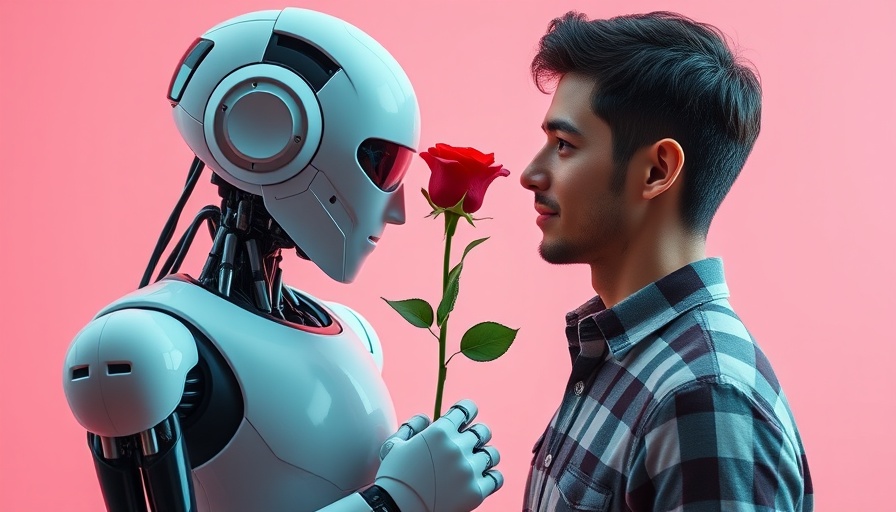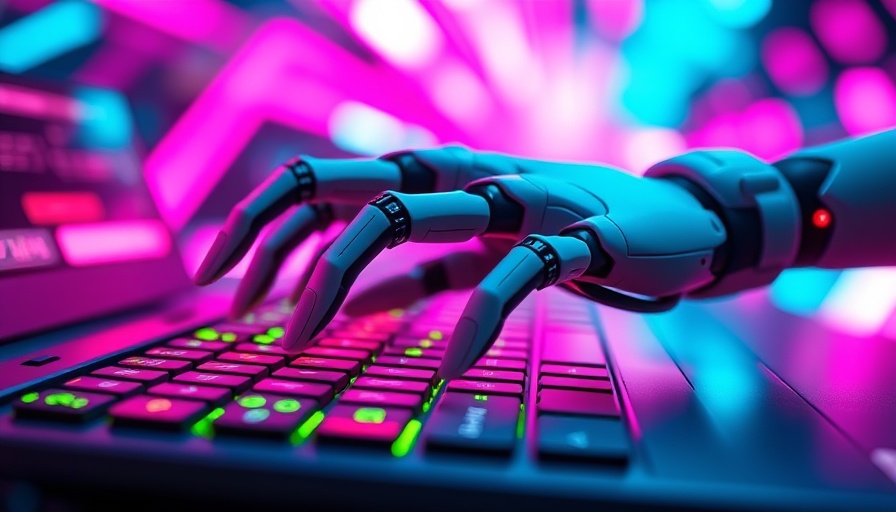
The Evolution of Dating: Is AI the New Wingman?
In today's digital age, online dating has transformed romantic encounters into a streamlined process dominated by algorithms, swipe gestures, and messaging. However, the rise of generative AI tools, like ChatGPT, heralds a new and complex era where romantic connections might be more artificial than real.
Take the story of Richard Wilson, who noticed that his date exhibited none of the conversational flair she'd displayed over text. Her engaging messages were created with the assistance of AI, leaving him disappointed when faced with a lackluster interaction in person. This incident brings attention to a growing trend: individuals leaning on AI not just for messaging but also for constructing identities and managing romantic prospects.
The Impact of AI on Online Dating
Companies like Match Group, which owns Tinder and Hinge, have embraced generative AI, integrating features that offer profile summaries, match optimization strategies, and even message prompts. Critics argue that while these features aim to streamline the dating experience, they may inadvertently diminish the authenticity that is critical to meaningful connections.
Indeed, as Amanda Gesselman from the Kinsey Institute points out, there is a danger in presenting a facade—altered images or hollow interactions can lead to disillusionment when people meet in reality. It begs the question: are we pursuing genuine relationships, or are we merely navigating a digital marketplace, seeking the highest number of matches?
Understanding the Broader Picture
As AI continues to shape user behavior on dating apps, Match's head of trust and safety, Yoel Roth, enlightens us on the tech's protective roles—preventing harmful interactions and moderating potentially offensive messages. However, the effectiveness of AI in facilitating authentic human connections remains under scrutiny. The filtering process could lead to sanitized interactions devoid of true human emotion.
Loneliness vs. AI Companionship
While some apps, like Replika, propose creating entirely AI-generated romantic partners, we must consider the emotional implications. For individuals feeling isolated or lonely, engaging with AI may offer a temporary solace, but could it inflict greater emotional struggles in the long term? Seeing a bot as a companion might feel reassuring initially, yet it risks fostering an urge to withdraw from genuine human interactions.
Trends and Opportunities for Small Business Owners
For small business owners trying to leverage this AI wave, understanding these shifting dynamics is vital. There exists an opportunity to develop services that integrate authenticity and human touch into online interactions. Emerging trends reveal consumers are seeking more meaningful connections, driving a demand for platforms that prioritize real emotional exchanges over mere numbers on a screen.
By creating workshops focused on conversation skills, small businesses can cater to this market. Teaching individuals how to engage meaningfully in both virtual and real-life settings may carve a unique niche in an industry that is currently being altered by AI speculation.
Challenges Ahead
However, as the convenience of AI in dating becomes pervasive, ethical considerations must not be overlooked. Calls for more stringent regulation are emerging, with AI's ability to manipulate interactions and perceptions coming under scrutiny. Business owners must self-regulate ethically, ensuring their strategies avoid exploitation or deceit.
Conclusion: The Future of AI in Dating
In conclusion, as technology progresses, its intersection with dating culture will undoubtedly evolve. The challenge moving forward will revolve around achieving a delicate balance—offering users the efficiency of AI while keeping the essence of genuine human connection alive. For small business owners, understanding this landscape and developing strategies that foster authenticity could provide a competitive edge.
 Add Row
Add Row  Add
Add 




Write A Comment